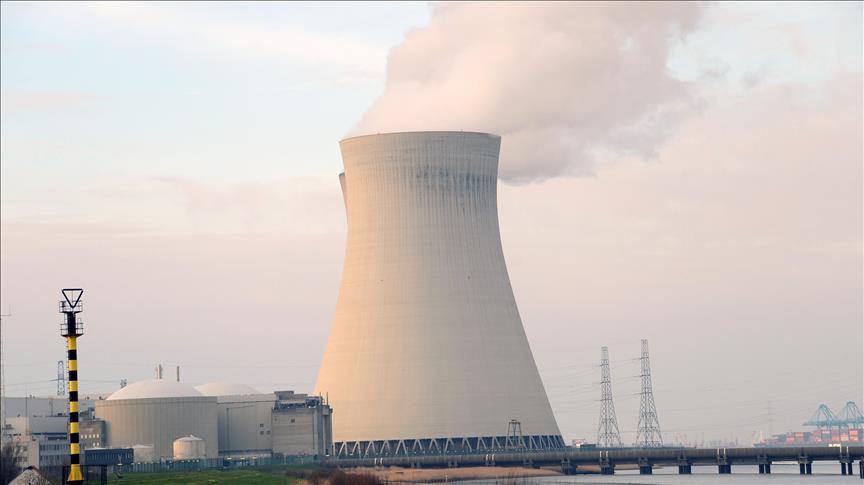

By Anadolu Agency
After a five-month hiatus, negotiators reconvened in Vienna on Thursday for a fresh round of talks to salvage a 2015 Iran nuclear accord.
Under the shadow of Tehran’s rapidly expanding nuclear program, the highly anticipated indirect talks between Iran and the US, mediated by the EU, resumed on a subdued note and with guarded expectations.
Iran’s lead negotiator, Deputy Foreign Minister Ali Bagheri, held a one-on-one meeting with the EU’s Enrique Mora at the Palais Coburg hotel, picking up from where they left off in Doha last month.
The meeting, according to sources, focused on the draft text recently put forward by EU foreign policy chief Josep Borrell, as well as Iran’s proposal, which mainly stresses the removal of sanctions and economic benefits from the agreement.
Borrell, in an article in the British publication Financial Times last week, said he pitched a new draft text to the parties in a bid to break the deadlock in reviving the nuclear deal, officially known as the Joint Comprehensive Plan of Action (JCPOA).
Over the weekend, Bagheri said Tehran has responded to the proposal and shared its own ideas “in substance and form” to pave the way for “swift conclusions” at the Vienna talks.
While details about the EU proposal are still not known, a senior Iranian lawmaker said on Wednesday that the draft text accommodates Iran’s demands to a large extent.
Bagheri arrived in the Austrian capital early on Thursday, hours after he said “the onus (to close the deal) is on those who breached the deal and have failed to distance from ominous legacy,” referring to the Biden administration.
“The US must seize the opportunity offered by the JCPOA partners’ generosity; the ball is in their court to show maturity and act responsibly,” he said on Twitter.
Bagheri and his delegation also held separate talks with representatives from Russia and China.
The meeting between Bagheri and Russian envoy Mikhail Ulyanov was attended by Behrouz Kamalvandi, spokesman for Iran’s nuclear agency, and the country’s newly appointed permanent envoy to Vienna-based organizations, Mohsen Naziri Asl.
After the meeting, Ulyanov took to Twitter to say the two sides had “a frank, pragmatic and constructive exchange of views” on “ways and means of overcoming the last outstanding issues.”
Ulyanov was later quoted as saying by Iran’s state news agency IRNA that he hopes this will be “the last round of negotiations,” adding that the parties are “very close to the finish line.”
The Iranian delegation also held talks with Chinese negotiator Wang Qun and his team on Thursday.
Meetings will continue in the coming days between Iran’s delegation and the P4+1 representatives.
– ‘Very low’ expectations
What has, however, dampened hopes is the absence of top negotiators from the E3 countries – France, Germany, and the UK – in this round, unlike the previous seven rounds.
The three European JCPOA signatories have sent experts to Vienna this time.
A report in the Wall Street Journal on Thursday quoted one unnamed E3 official as saying that his expectations were “very low.”
The latest round of talks also comes amid heightened tensions between Iran and the US, especially after President Joe Biden’s high-profile Asia tour, where he signed two highly critical resolutions against Iran, much to the chagrin of Tehran.
What has so far prevented a breakthrough, despite progress in the previous rounds, are key sticking points between Tehran and Washington, including the delisting of Iran’s elite military force, the Islamic Revolutionary Guard Corps.
A recent Wall Street Journal report claimed Tehran has dropped the demand in exchange for sanctions relief and to close the marathon talks in Vienna.
However, Iran’s state news agency dismissed the report on Thursday, citing a source close to the negotiating team.
Ahead of Bagheri’s trip to Vienna, Iran’s nuclear agency chief Mohammad Eslami said on Wednesday that cameras operating beyond the safeguards agreement at the country’s nuclear sites will be turned on “only when they drop their claims and return to their commitments,” referring to the International Atomic Energy Agency (IAEA) and the US.
The UN nuclear watchdog’s board in early June criticized Tehran for failing to cooperate with a probe into what it claimed were undeclared nuclear particles found at some facilities in Iran.
The anti-Iran resolution at the IAEA board of governors meeting came after Iran’s nuclear body announced its decision to shut off cameras at some nuclear sites that were installed for monitoring purposes as part of the 2015 nuclear deal.
Observers believe the standoff with the IAEA, as well as issues with Washington, are likely to act as major obstacles in Vienna.
Last month, the talks moved to Doha in a different format – indirect negotiations between Iran and the US mediated by the EU. The first round, however, failed to produce any substantial result.
We use cookies on our website to give you a better experience, improve performance, and for analytics. For more information, please see our Cookie Policy By clicking “Accept” you agree to our use of cookies.
Read More